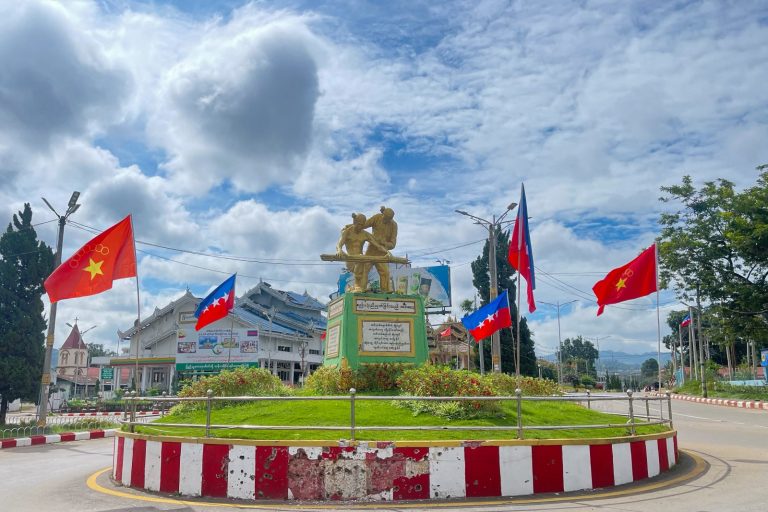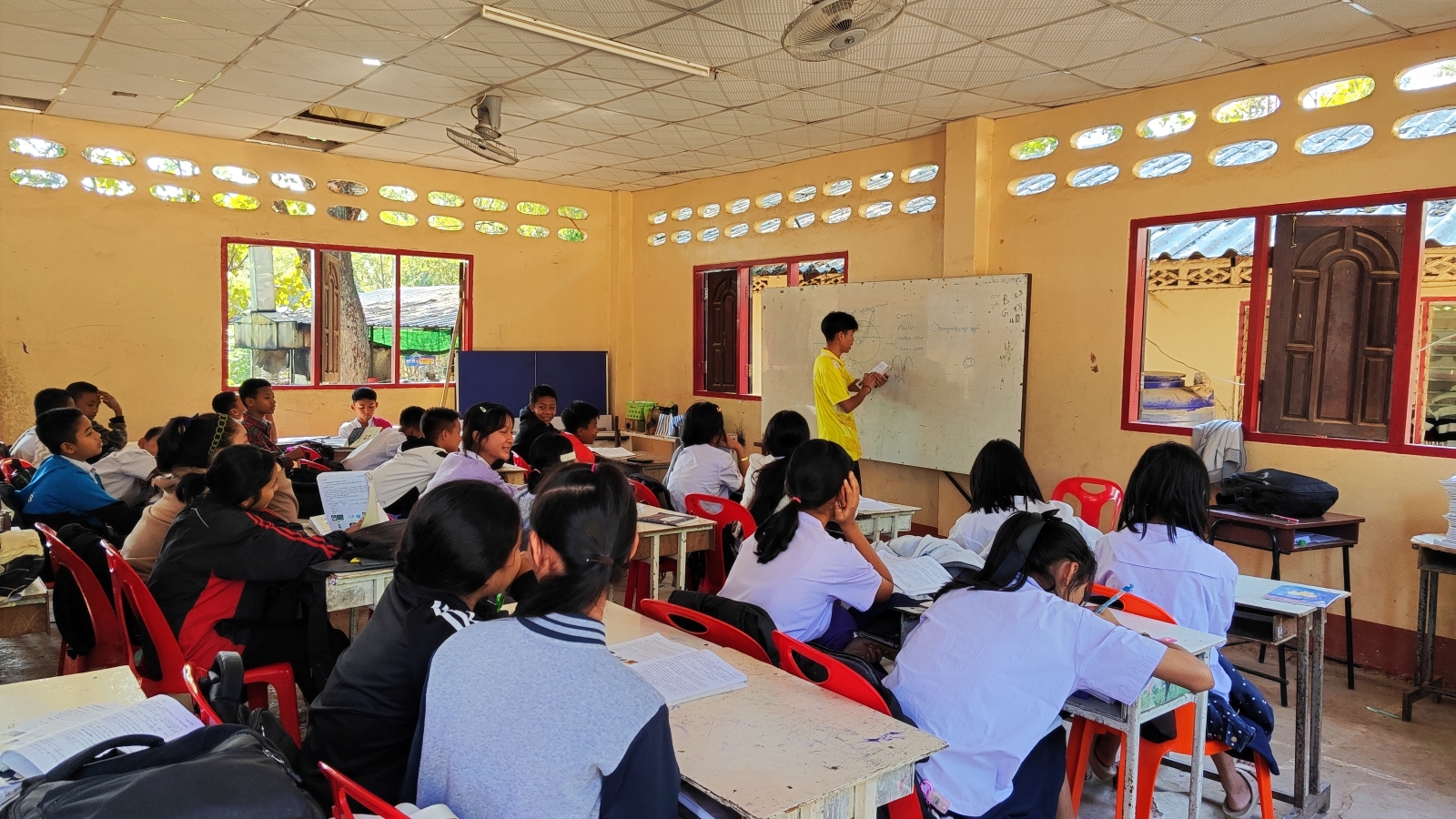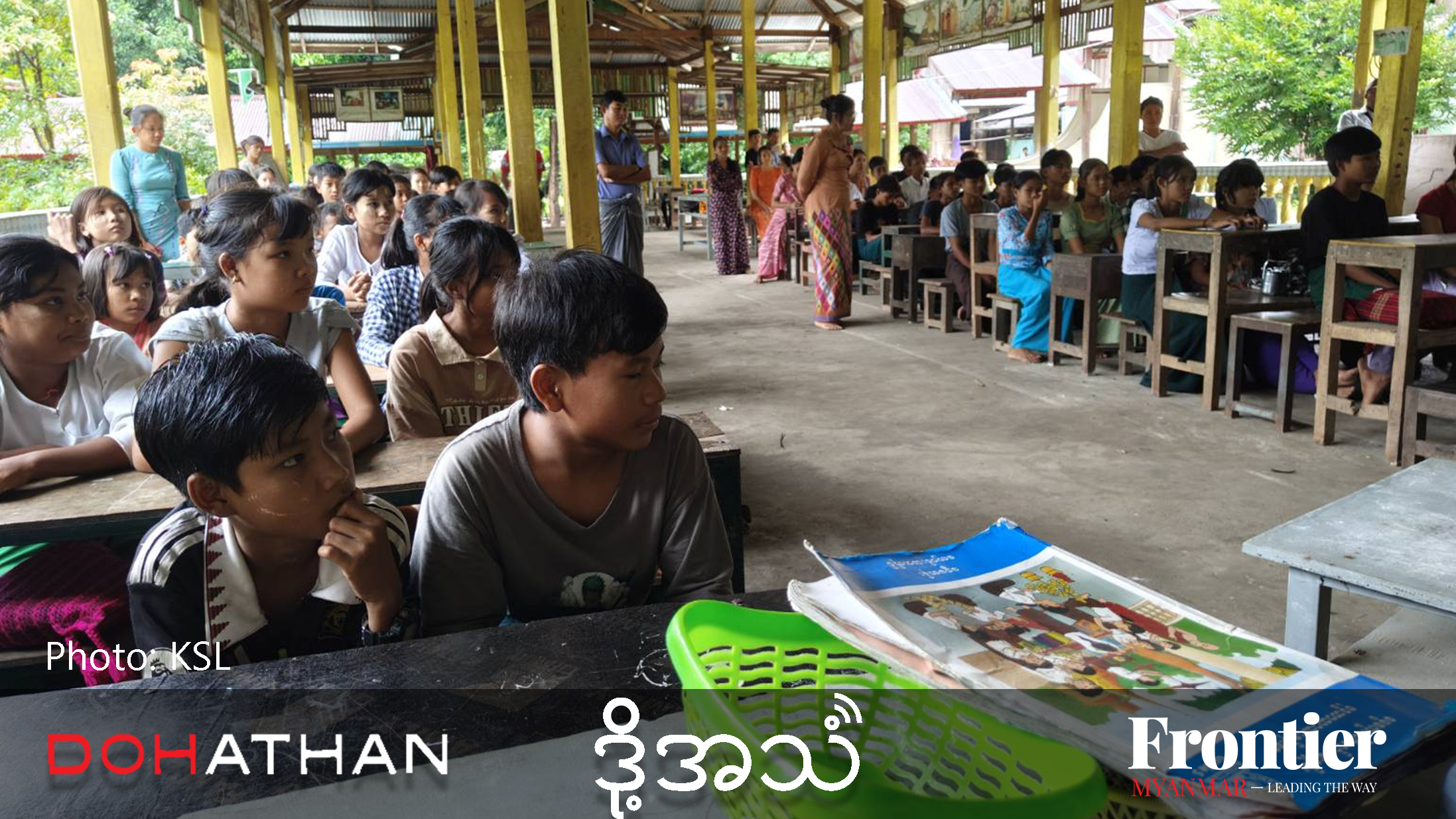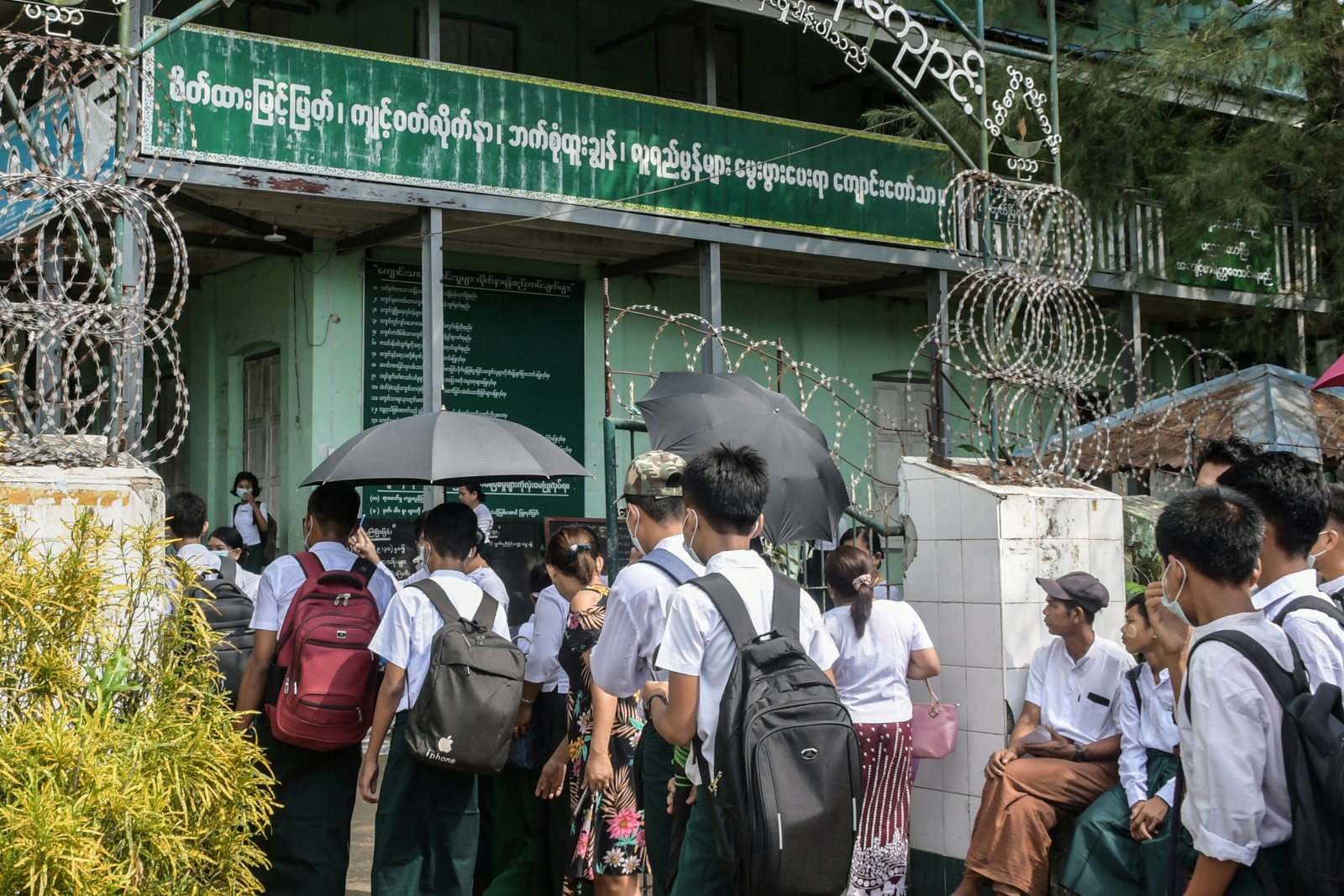From eliminating fake education documents to storing medical records, blockchain technology has much to offer Myanmar.
By KYAW YE LYNN | FRONTIER
When a person applies for a job, it’s standard practice to provide the prospective employer with education certificates and evidence of any other qualifications.
In Myanmar, where the education system has been in decline for decades, employers are likely to insist that even applicants for labouring positions are university graduates, or that cleaners have studied to at least the 10th Standard.
It also why there is a thriving market for fake educational certificates and job qualifications.
“People here need to make fake documents sometimes,” said Ma Nyo Thin, the owner of one of several shops along Mahabandoola Street in downtown Yangon that specialise in notary services. Frontier has learned that almost all of the shops sell fake documents.
Support more independent journalism like this. Sign up to be a Frontier member.
“Last year, a woman in her 50s asked if I can make a fake certificate showing she’d passed Grade 10 [Ninth Standard] so she could apply for a cleaner’s job at a small local company,” she told Frontier.
Nyo Thin learned that the woman, who had not completed primary school, had been with the company for nearly a decade but was anxious because it had changed hands.
“She told me that the new boss only wanted employees who had at least attended high school. That’s why she needed a fake document,” she said.
“Such a practice is ridiculous, but it’s good for our business,” said Nyo Thin with a smile, adding that she had been making fake documents for more than a decade but had never been questioned by the authorities or any employers.
“Actually, no one checks if it is real or fake; our certificates work well for those seeking a job overseas,” she said.
Posing as a customer, a Frontier reported approached another business on Mahabandoola Street run by a man and asked for a fake certificate of the University of Distance Education.
“Will it be for a job application?” he said, adding that the price would be K20,000.
He said the material used to make the certificate was genuine.
“The paper, handwriting and seals are real. We got it from our guys who are with the [education] ministry. Only the information on the certificate is not true. You will be okay unless they check your information against their official records,” he said.
He advised caution if the certificate was to be used to apply for a public service position, as it could be subject to an inter-departmental check.
“But you will have no problem at all with private companies,” he said, adding that they rarely checked a job applicant’s education certificates.
Even if they wanted to, he said, “there is still no easy way to check such information”.
Government departments continue to rely on manual, paper-based systems and checking documents can be time-consuming, if it is possible at all.
That could soon change, at least for certain documents, thanks to blockchain technology.
U Aung Bo Bo Lin, director of Blockchain Development & Research Co Ltd, said he has been in talks with the Ministry of Education about creating a secure means for the public to verify whether education documents are genuine.
“I presented the Minister of Education with an idea for transforming the ageing documentation system when we met last year,” said Aung Bo Bo Lin. While the minister expressed support for the plan, Aung Bo Bo Lin said further negotiations were needed.
“The idea is to insert students’ education records onto a blockchain-based app so that the data can be checked at any time,” he told Frontier.
Blockchain technology would allow the app to quickly check if an education certificate was real and could also be used to store someone’s entire educational record.
Instead of storing information on a server, blockchain uses what’s known as distributed ledger technology to compile a list of records that are linked and made secure using cryptography. The records are replicated and shared across multiple sites.
Blockchain is the technology underlying bitcoin, the world’s first cryptocurrency, launched in 2009.
“This could be a faster, safer and cheaper solution,” Aung Bo Bo Lin said.
“What we need is to run the software on computers. That’s known as mining,” he said, adding that computers owned by the ministry could be used for the system.
“With blockchain technology, it’s almost impossible for someone to hack the system and make changes to the information,” he said. “Blockchain is the best tool to fight the fake documents.”
Dr Kyaw Naing, deputy director general of the Department of Higher Education, acknowledged that fake certificates were used to support applications for jobs but said it was only an issue for unskilled positions.
Kyaw Naing insisted that the department provided information to verify a job applicant’s education certificates if requested by a prospective employer.
“However as you know, it takes time as we are still using a paper documentation system and it is manual,” he told Frontier on March 13.
Asked about the proposal made by Aung Bo Bo Lin’s company he said the department was not aware of it and there had been no instruction from the minister or the ministry about any further negotiations.
“Technically it is possible to put a student’s record on an application,” he said. In practice, though, it would be difficult because of the large amount of data that would need to be digitised and the fact that the ministry’s records are not complete, with some missing or destroyed. “Like other departments, we also have data duplication,” he said.
nswks-_potrait-2.jpg
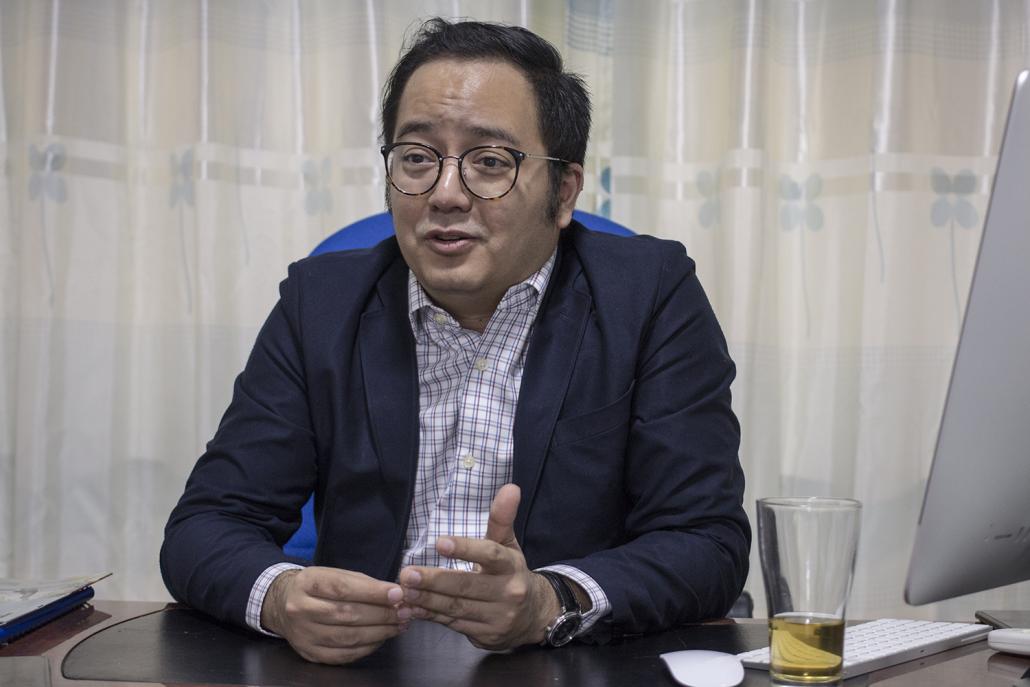
Ms Erin Murphy, founder of Inle Advisory Group, a business consultancy, said Myanmar has an advantage in adopting new technology because it does not have to overcome “legacy” institutions, which may be resistant to employing blockchain.
“Myanmar could be an interesting place to start using blockchain; it’s already being used at the Yangon Stock Exchange,” she told Frontier in an email on March 14.as
Murphy said the use of blockchain technology has huge potential and could help to build trust in the financial and banking system, “where there is none”, and provide capacity “where there isn’t any”.
Aung Bo Bo Lin said that because Myanmar was a latecomer it could leapfrog and take advantage of the latest technologies.
“The world is changing so fast with new technologies emerging day by day, so Myanmar should use the latest technology, not the old technology,” he said.
Blockchain Development and Research was also in talks with a private hospital to put the records of more than 4,000 patients on a blockchain, he said.
“Once completed, it will enable a patient’s medical records to be accessed easily and instantly,” he said, adding that he could not reveal the hospital’s name because of a confidentiality agreement.
Aung Bo Bo Lin said a group of Myanmar computer professionals familiar with blockchain technology were trying to arrange a meeting with government officials to explain its advantages.
“It’s extremely important to make very clear that blockchain is not all about cryptocurrencies,” he said.
“We want to explain to the policy makers how they can improve government services by adopting blockchain.
“For example, land ownership is one of the country’s most complicated issues, but it could easily be solved with blockchain.”
Murphy said there were many potential applications for blockchain in Myanmar that could build investor trust in the Myanmar economy and benefit many Myanmar people.
“Blockchain can do many things,” she said. “It’s not so much accepting or adopting blockchain, but identifying where it could best be used.”



